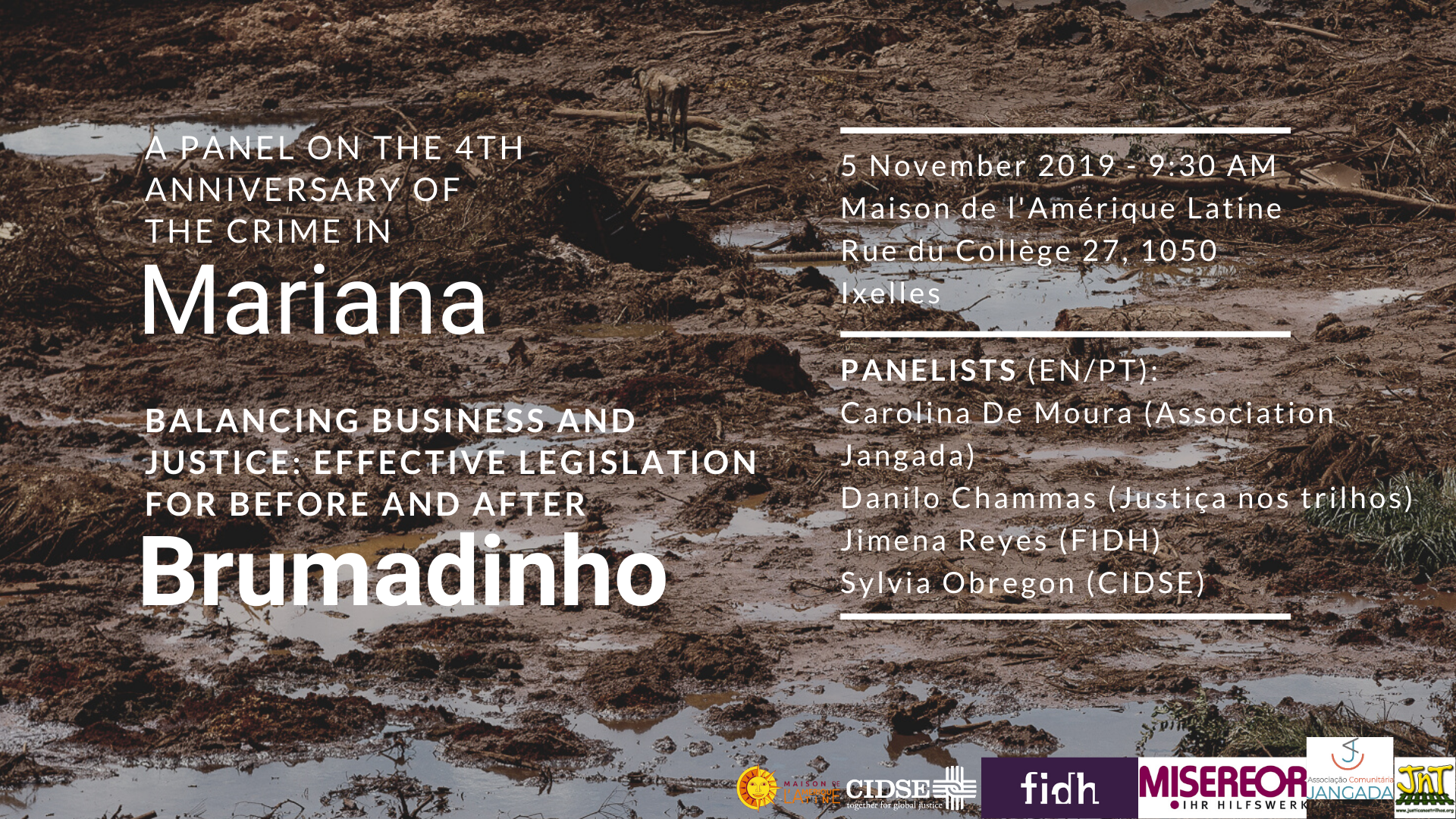Panel: Balancing business and justice – effective legislation for before and after Brumadinho
On November 5, the 4th anniversary of the Mariana dam collapse, activists and experts will come together at the Casa de America Latina to commemorate Mariana and Brumdinho. The panel will discuss the case of Brumadinho and the EU’s role in effective legislation to ensure redress to victims of such crimes, and to obligate corporations to prevent tragedies like this from ever happening again.
On 25th January this year, in Brumadinho, Minas Gerais, Brazil, the collapse of a tailings dam operated by the Brazilian mining company Vale killed 272 people and affected 300 km of land and river with toxic waste, compromising the livelihoods, food and water security of neighboring communities.
European companies are involved along Vale’s production chain, such as ThyssenKrupp, BMW, ArcelorMittal and German banks.
The organisations MISEREOR and ECCHR recently filed a law infringement complaint against TÜV SÜD – the German certification company that had confirmed the dam’s stability 4 months before its collapse – on the charges of violation of supervisory duties and of negligence in causing a flood, and charges against one of its employees for negligent homicide and private bribery.
This is not the first time European companies are responsible for crimes associated with Vale. Three years earlier Vale in the Samarco mine consortium with the British TNC BHP Billiton were responsible for a similar devastating dam collapse in the nearby town of Mariana.
Displaying the regional barriers to justice, a recent vote in the Environmental Policy Council of the State of Minas Gerais approved the reopening the Samarco mine. International organisations have been trying for years to use their leverage to ensure redress to victims and preventative measures of this kind of corporate negligence.
In spite of lawsuits filed both in Brazil and the UK after Mariana, no preventive measures were taken prior to Brumadinho. To date victims of both crimes have not yet been appropriately redressed. On the contrary they are facing intimidation, harassment, enormous challenges to access justice, a loss of livelihoods, and lack of access to safe water and food.
The actions of civil society to ensure justice have fallen short in the absence of legally binding international legislation for business that puts social, human rights and environmental issues at its centre. The role of European institutions is instrumental for the development of a legislative framework that holds corporations accountable.
The 5th of November will mark 4 years since the Mariana crime. On the basis of the case of Brumadinho, two local activists and two representatives of INGOs will confront the loss of human and natural life in these crimes and revisit the injustice of corporate impunity. The panel will discuss the role of the EU in shaping effective legislation for the prevention of adverse human rights effects of business activities and providing access to justice for affected people and communities. These skilled advocates will review the processes in which the European Union can contribute to strengthening regional and international binding legislation for corporate accountability such as through mandatory human rights and environmental due diligence and at the UN Treaty.

